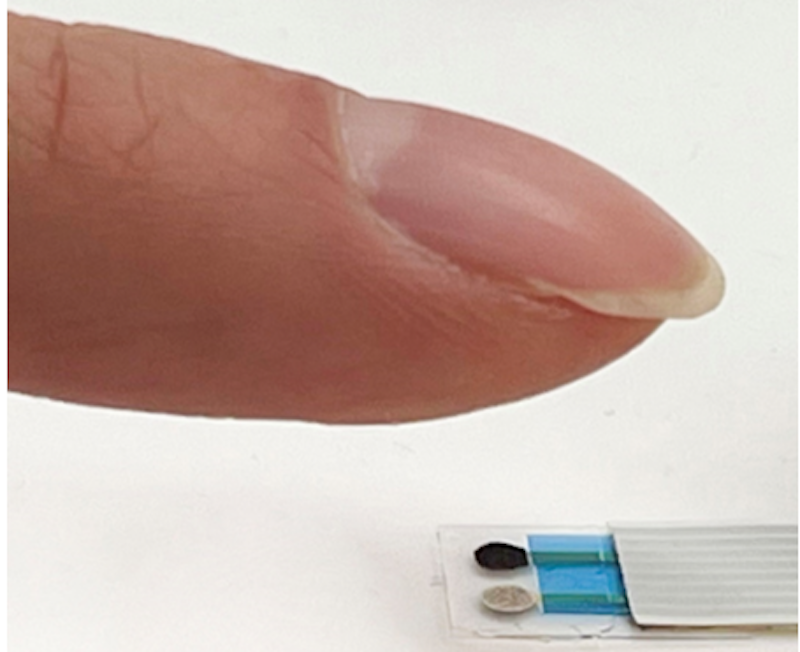
Sensor could help patients stay on top of their meds
Lithium can alleviate the symptoms of bipolar disorder and depression—if taken in just the right amount. Too little won't work, while too much can bring on dangerous side effects. To precisely monitor the amount of this medication in the body, patients must undergo invasive blood tests.
But today, scientists report the invention of a tiny sensor that detects Lithium levels from sweat on the surface of a fingertip in as little as 30 seconds, without a trip to the clinic.
Sweat is generally only present in minute amounts, but the electrochemical sensing needed to detect charged particles of Lithium required an aqueous, or watery, environment. To provide it, the team engineered a water-based gel containing glycerol.
To trap the Lithium ions after they traversed the gel, the team used an ion-selective electrode. The accumulating ions generate a difference in electrical potential compared with a reference electrode.
The researchers used this difference to infer the concentration of Lithium present in sweat. Together, these components comprise a tiny, rectangular sensor that is smaller than the head of a thumbtack and can detect lithium in about 30 seconds.
This technology also has applications beyond Lithium. Researchers is developing similar touch-based sensors to monitor Alcohol and acetaminophen, a painkiller also known as Tylenol, while also exploring the possibility of detecting other substances.
 English
English Arabic
Arabic


